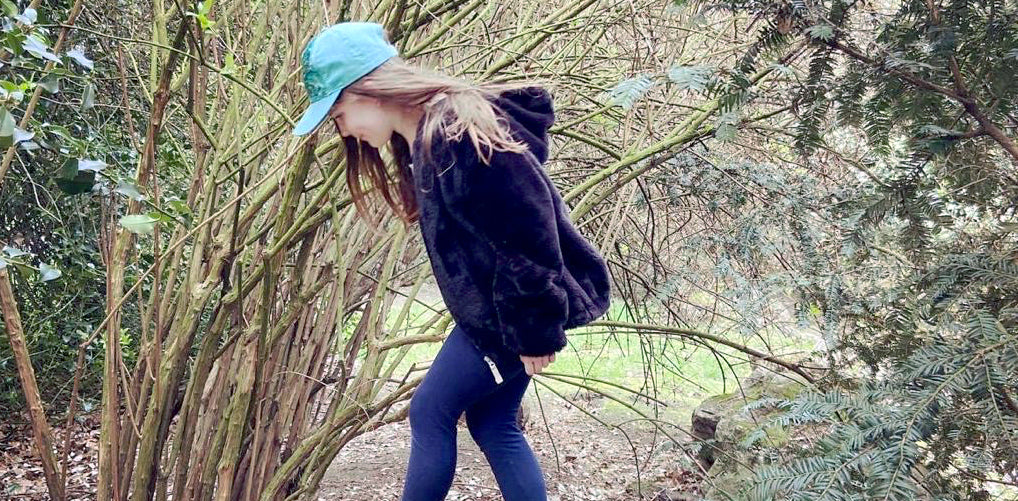At Outdoor People, we're getting used to new ways of doing things, and are working hard at coming up with solutions. A quick reminder here about the guidance on social distancing - can't stress this enough, these are really important.
Sadly, we can’t arrange staff-led family walks as usual, but we CAN give parents in London advice on where to go, how to get outdoors, and explore spaces for play, for learning and for mental health.
We can help both parents and children have a bit of nature connection, a bit of destress time, and come out of this time having learnt how important time outdoors is and how many green spaces are nearby.
We’re going to publish a series of blogs over the next couple of weeks, giving different perspectives on families’ experience of home education, play and the outdoors: the challenges they’re facing, and the ideas and tips on how they’re connecting with nature. For many of the families we work with, we recognise these are challenging times, but what’s clear is that people are already working out approaches that suit their family and their circumstances.
Our first guest blog comes from Emily Hunt, based in Hackney, who has been balancing working from home with looking after her daughter for just over a week now.
'By 3:45 in the afternoon of the first day, I was shattered. Bone weary shattered and unable to move from the couch for an hour while I re-collected myself.
I didn’t come into homeschooling blind. Perhaps I’m lucky. I have a number of friends who homeschool in America, and at various points and for various reasons, I have vaguely considered homeschooling my daughter here in London. So when we decided that thanks to corona virus, it was time to give it a whirl, I may have thought I was more or less prepared.
That first day felt like sprinting the length of a marathon. The good news is every day has gotten better, and now that we’re all in a UK-wide crash course in homeschooling, I thought I’d share my hard-won knowledge with you - only because I’m a few days ahead of most families in this journey.
- Try to keep things as normal as possible
From wake up time to breakfast to getting out the door, we do our mornings in the exact same way we have for the rest of this year. Our after school time is pretty similar too, except much to my daughter’s delight, she has far less homework to do as almost everything gets accomplished during the day. She’s even taken to FaceTiming with a buddy from school during some of her breaks and they chat in pretty much the same way they would during break at school. Her routine feels, frankly, as routine to her as possible given the circumstances.
- Make a master schedule
I am not a perfect mother. Maybe other people can organise educating their kids on the fly while trying to get work done and battling an ever growing pile of dishes, but I cannot. On Sunday night, I put together a master schedule with different blocks for learning time, break, and moving around time. Each evening after my daughter is in bed, I set the tasks for each learning block in the master schedule. It takes maybe 15 minutes.
This is an example of our master schedule:
|
7:45-8:30 |
“Walk to school” |
|
8:30-9:00 |
Tidy up, get set up for the day |
|
9:00-10:00 |
Learning Block 1 |
|
10:00-10:30 |
Break |
|
10:30-11:30 |
Learning Block 2 |
|
11:30-12:00 |
Reading |
|
12:00-12:30 |
Lunch |
|
12:30-1:00 |
Recess |
|
1:00-1:15 |
Typing Club |
|
1:15-2:15 |
Learning Block 3 |
|
2:15-2:45 |
Movement Break |
|
2:45-3:45 |
Independent Research Project |
|
3:45-4:00 |
Tidy up |
|
4:00-5:00 |
After School Activity |
|
5:00-6:00 |
Any Homework |
By the fourth day, she was referring back to her schedule and instructions and just getting on with things without too much intervention from me. It’s verging on magical. I’m getting on with my own work.
When putting together your master schedule and learning blocks remember that this is not forever: do some math and some reading everyday but you are not designing a curriculum to holistically educate your children until they go to university. This doesn’t need to be perfect. Plus, there are tons of resources going around right now - everything from free bundles on Twinkl to enrolling in Outschool classes - you don’t need to reinvent the wheel.
What is something that they have been wanting to learn and is there a way to empower them to learn all about it?
- Get outside everyday if possible. Preferably at least twice
My daughter and I started walking the 35 minutes to school every morning at the start of the year, and she has said that when she sits down at her desk at school, she is ready to learn.
I knew we needed to keep our morning walk. But I don’t think I quite realised just how much energy she has and how much she really just needs to be outside and moving to have any chance of burning it off.
We have quite a few breaks in the day, and we try to get outside and walk around (or in her case run around) as much as we can. We’ve even created a special schedule for Wednesdays to make sure that there is extra outside time - because by midweek I could see her concentration suffering from being in the house so much.
---
You can follow Emily and The Kiddo's homeschool journey over on Instagram at:


